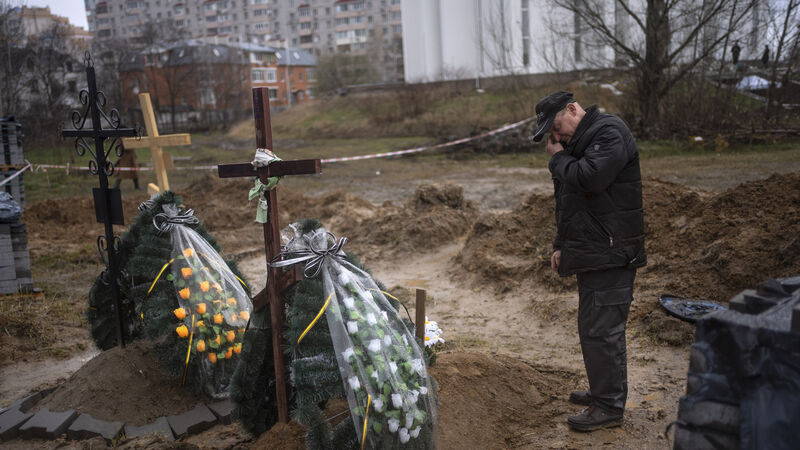Why war atrocities like Bucha still take place

Oleg, 56, mourns for his mother Inna, 86, killed during the war against Russia in Bucha. Picture: AP Photo/Rodrigo Abd
Try from €1.50 / week
SUBSCRIBE
Oleg, 56, mourns for his mother Inna, 86, killed during the war against Russia in Bucha. Picture: AP Photo/Rodrigo Abd
SINIšA Malešević has been researching wars and organised crimes for over two decades.
A professor of sociology at University College Dublin and author of the upcoming book Why Humans Fight, he has personal reasons for the research: A native of Bosnia and Herzegovina, he was directly affected by the wars that followed the dissolution of Yugoslavia.
Already a subscriber? Sign in
You have reached your article limit.
Annual €130 €80
Best value
Monthly €12€6 / month
Introductory offers for new customers. Annual billed once for first year. Renews at €130. Monthly initial discount (first 3 months) billed monthly, then €12 a month. Ts&Cs apply.
CONNECT WITH US TODAY
Be the first to know the latest news and updates
Newsletter
Sign up to the best reads of the week from irishexaminer.com selected just for you.
Newsletter
Keep up with stories of the day with our lunchtime news wrap and important breaking news alerts.
Newsletter
Sign up to the best reads of the week from irishexaminer.com selected just for you.
Saturday, February 7, 2026 - 9:00 PM
Saturday, February 7, 2026 - 9:00 PM
Saturday, February 7, 2026 - 11:00 PM
© Examiner Echo Group Limited